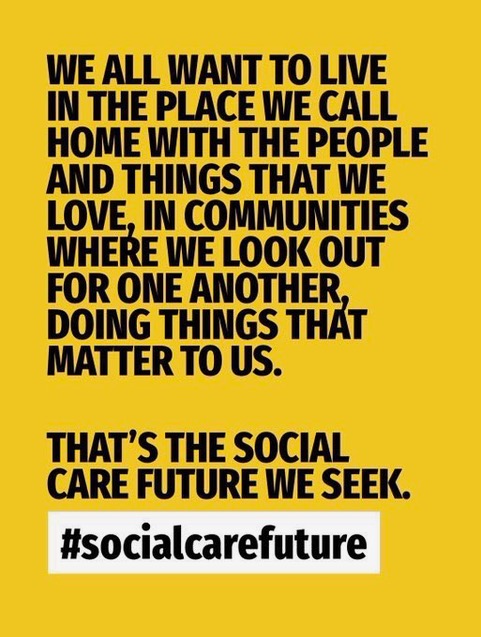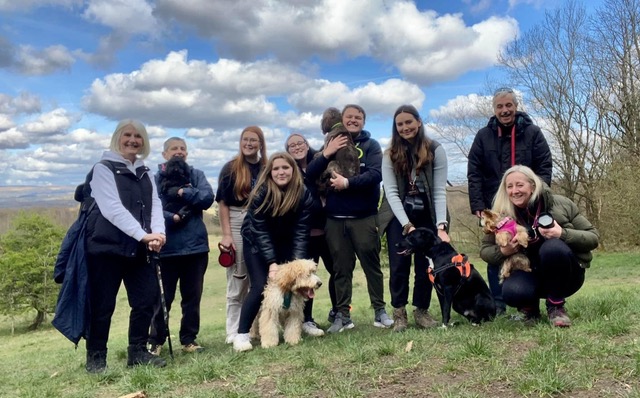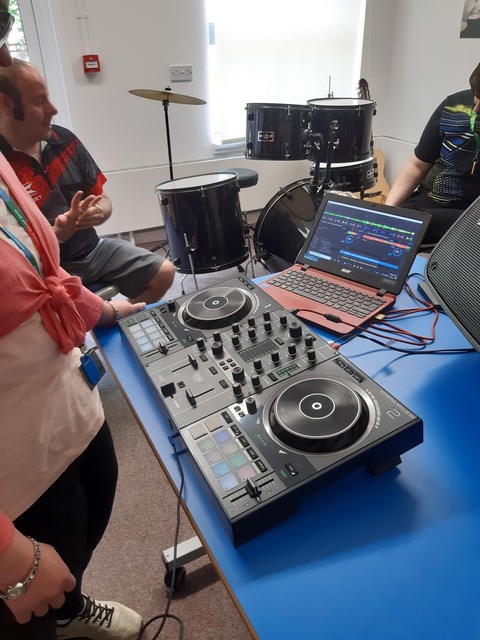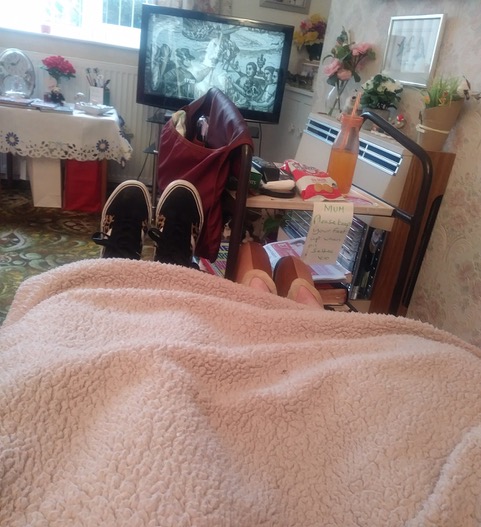Many people with dementia are lonely, bored and have little in their lives that feels purposeful. A Community Circle is an evidence-based approach, that has been shown to enable people living with dementia to do more of what matters to them and feel less isolated. Here are 9 reasons why I am excited about the potential of Community Circles to make a difference.
1) Circles are both old and new
The concept of Circles of Support is not new. The first Circle of Support (also known as Circle of Friends) was developed in Canada, to support Judith Snow, a disabled woman, to move from a nursing home to her own apartment (Forest & Snow 1983). A Circle brings together a small group of people (between 2 and 1s people – family, friends and staff) who come together to support a person, helping them to identify what they would like to do or change in their life and then supporting them to make this happen. Although the concept of Circles of Support has been around for over three decades, and with the best efforts of organisations like Circles Network, there are still relatively few in the UK. Community Circles is a charity dedicated to changing this – and seeking to make sure that Circles of Support are available everywhere, for anyone who wants one, and that people living with dementia benefit from them.
2) Circles are evidence-based
The NDTi and Innovations in Dementia led a three-year project which took place in four areas of the South of England and was funded by the Department of Health’s Innovation Excellence and Service Development fund. They found that: people living with dementia who took part in the project are doing more of what they want and feeling less isolated. Other positive outcomes include the creation of mutual peer support groups, improved relationships with carers and enhanced social networks. This enhanced support can help people to achieve outcomes such as continuing to live at home and sustaining employment. Staff at partner organisations are thinking and acting differently; more broadly and creatively, focussing on networks, and having different conversations about people’s lives. You can read more about this in the Journal of Dementia Care Jan/Feb 2015.
The London School of Economics also researched Circles of Support and found that they promoted well-being and major psychological and practical outcomes for the person and their family.
3) Circles are outcome-focused and enable people to do what matters to them
Each Community Circle begins with a purpose – what does the person want to change or achieve? May is in her eighties and lives with 43 other people with dementia in a care home. The purpose of her Community Circle was to get singing again. May is now part of her local Community Choir, goes to choir practice on Sundays and has taken part in two performances.

This is supported by the NDTi research that says:
“People are doing more of the things they want to do, such as regular walking and visiting local attractions. In many cases this has come from bringing people and information together to connect to new people and opportunities.”
4) Circles are examples of coproduction in practice
Think Local Act Personal says: The term co-production refers to a way of working, whereby everybody works together on an equal basis to create a service or come to a decision which works for them all. It is built on the principle that those who use a service are best placed to help design it.
A Circle does this by the person deciding who they want to invite to their circle, and what they want to achive through their circle. At the circle meetings people think together about:
- Who is in that person’s life – and who they would like in their life
- What the person does – and what they would like to do
- Where the person goes – and where they would like to go
- How they can contribute and how other people can support them
- What matters to them person – what is important to them
The NDTi research shows that Circles enhance a person’s voice.
“Other outcomes have included enabling mutual and peer support, strengthened voice, support to continue living at home”
5) Circles build dementia friendly communities from the person out
Another key finding from the NDTi research is that “This approach can really help people with dementia to increase or maintain contact with personal and community networks”
Researcher, Alison Macadam shares that “part of this project, their natural networks are very small or remote: friends and family had often drifted away or died. We found that involving and linking people is not always easy, but the majority of people with dementia involved in the project (46 out of 48) were able to meet new people and strengthen existing connections”.
Community Circles contribute to building dementia friendly communities in two ways, through the members of the Community Circle, and where the purpose of a circle is to help people connect, as you can see from Lynda’s story.
Lynda is living with dementia, the purpose of her circle is to help her feel more connected with her community. Through ideas suggested at her circle meetings, Lynda now volunteers for a local walking group, combining her love of walking and fresh air with her welcoming nature, supporting new members to the group and feeling valued for her contribution.

Through Community Circles, people naturally learn how to be with, gently support and connect with someone who lives with dementia, both as part of the circle and in their community too.
6) Circles support carers too
The NDTi research shows just how important Circles can be for carers: “Support from a Circle can also make a crucial difference to carers, helping them feel supported and that they don’t have to be left to do everything. As with many approaches to good support for people living with dementia, it seems that the earlier a Circles approach can be adopted, the more likely it is to be beneficial.” This was certainly Alan’s experience.
Alan is a full time carer for his wife, Lynda, who is living with dementia. At one circle meeting they looked at what’s working well and what’s not working; Alan mentioned he was struggling with cooking, something he’s never done which Lynda isn’t able to do any more. The circle shared ideas about how they could support Lynda and Alan and they decided to develop their own casserole club. Now each circle member a couple of times a month makes an extra portion of food to freeze and share to support Lynda and Alan to have home cooked food.

7) Circles help families and friends
It can be very hard to ask for help, and both people living with dementia and their carers can find this difficult. Equally families may not know how to help or how to offer either. A Community Circle is a way to support those conversations. This is what a friend from Lynda’s circle said ,”It’s brought issues up, we know what to do to help, it’s made room for action”
8) Circles also benefit facilitators and improve their well-being
A report by Corporate Citizenship in 2010, found that by supporting employees to volunteer regularly, individuals developed a number of key skills that were transferrable to their roles. Staff listed the following skills as ones they developed through being a volunteer: an improvement in communication skills, the ability to coach and support others, adaptability, influencing and negotiation skills. The New Economics Foundation found that there are 5 Ways to improve our well-being, and two of these are ‘Give’ and ‘Connect’.
Therefore Community Circles help people who are part of Circles and who facilitate them to enhance their well-being and develop skills.
9) Circles can contribute to changing how we provide health and social care in the future
We are exploring different ways that Community Circles can make a positive difference in the lives of people with dementia. Here are some examples:
- Hospital discharge – we are working in two areas to see how Community Circles can be available to support people with dementia as they leave hospital.
- Virtual wards – we are partnering with a virtual ward and offering Community Circles there.
- Home care – we have funding for a Community Circles Co-ordinator to be based with a homecare agency to support people with Community Circles to help people live at home for longer through community support.
- Care homes – we have funding for a Community Circles Co-ordinator to be based within a care home, so enable people to stay connected with their community and keep family and friends involved
There is some great work happening to build community with and around people living with dementia. I hope that Community Circles can play a role in supporting people living with dementia to connect, do more of what matters to them, to have a purpose and make a contribution. Maybe this is another way to develop dementia friendly communities too?
Helen Sanderson






